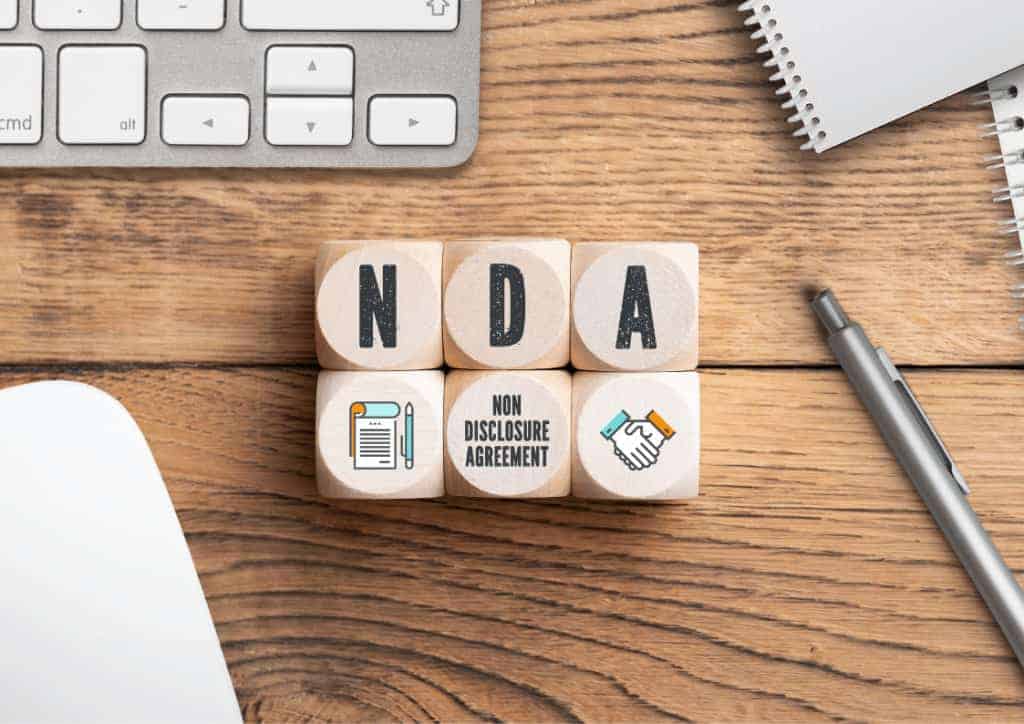Is It Normal To Have To Sign An NDA For A Job Interview?
Competitive advantages in business can be hard to come by – so when a company feels like it has an edge it will do everything possible to protect it. Including using NDAs during their hiring process.
To prevent the leak of valuable information (either intentionally or accidentally) a business must be wary of what they share and with whom they share it – nowhere more so is this statement applicable than during interviews where trade secrets might be shared with many candidates. Many of whom will ultimately be unsuccessful and never work for the company.
To combat the sharing of valuable information by prospective hires, non-disclosure agreements are commonly used.
Signing an NDA before an interview is now a common (although not ubiquitous) step in the hiring process in many innovative industries including tech, aerospace and pharmaceuticals. Basically, if when explaining your prospective role the company requires to share details of future projects, sensitive information or intellectual property a non-disclosure agreement is likely to be presented.
Don’t be mistaken into thinking that by being presented with an NDA you’re flirting with the dark arts of hiring, or being tricked into giving away.
Very often NDAs are used as a mutual confidentiality agreement that also protects the hiring company from potentially being sued by your past employers.
Take your time, read the conditions, and if they are not clear, challenge them.
If you do decide to accept the NDA terms you might want to take a few minutes to prep on how best to act when meeting your interviewer for the first time.
Why might a non-disclosure agreement be used during a job interview?
Protecting trade secrets is becoming more difficult in the era where careers are commonly spread across multiple organizations rather than one.
Frequent job hopping means that skills and knowledge are transferred between companies. Which is natural and somewhat expected when new start-ups and FAANG companies often headhunt talent with the express aim of bringing their proven experience in-house.
NDA’s are primarily used to prevent you from disclosing confidential information learned during the interview process.
This confidential information can take many forms. Rather than intellectual property an NDA may be used because one of the series of interviews may take place at a manufacturing facility where patented technology is on show.
Some of the primary reasons an NDA might be requested during an interview are to safeguard:
- Patented technology
- Intellectual property
- Client confidentiality
- Trade show secrets
- National security
- Future projects
- Proprietary data
On the flip side, NDAs can also be used by a business to demonstrate they are taking practical steps to prevent coaxing industry secrets out of the interviewees, such as those used in your past employment.
In this instance the NDA usually states that you agree to not disclose any confidential information which may have been learned during your employment at the hirer’s competitors.

It’s not just at interviews where NDA’s are cracked out either. Facebook has made a habit of requesting that attendees to their general meet-up events hosted at their Menlo Park HQ sign their name against a disclosure.
Do I need to sign an NDA as part of the interview process?
You likely won’t be able to learn all of the details about the role you are interviewing for without first getting on board with the idea of signing an NDA.
There are legal and financial consequences to employees leaking information – both of which are bad news for business – so hiring teams are usually adamant an NDA is in place before job specific responsibilities are revealed.
However you cannot be forced to sign an NDA, and nor should you if you don’t agree with its contents.
Just as NDA’s are now far more mainstream than they used to be, it’s also no longer taboo to challenge the content of such an agreement. If you’re not comfortable with putting your signature against the terms then request clarification or amendments.
Some of the elements of an NDA that you should look out for are:
- Extent of NDA. What type of information is considered to be covered by the agreement?
- Duration. NDAs are usually timebound. How long is the agreement in place for? This is crucial should you wish to leave your options open, and potentially work for a competitor in the future.
- Obligations. What type of action is considered to be in breach of the NDA? Does it cover the professional sphere only, or does it extend to all other parties such as your family and friends?
The NDA however is not always a deal breaker. If the company knows that they will forfeit a star candidate by forcing the NDA to be signed then they might reconsider.
Wrapping up
Non-disclosure agreements (NDAs) are now a normal part of the hiring process for many industries where confidential information needs to be shared during interviews.
Even if your role doesn’t require handling or being exposed to sensitive information don’t be surprised if you too are requested to abide by an NDA. Simply working alongside others who have access to this information is enough to get the attention of the company’s legal team.


